People are taking their seats in excited anticipation. The beer is flowing and a waiter wafts past with a plate of delicious-smelling food.
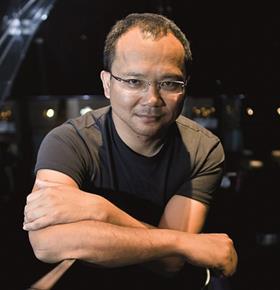
In a corner at the back of the dining area, the man who has curated this culinary scene sits in quiet contemplation - turning down the offer of food himself and ordering only a jasmine tea. He prefers not to eat and talk at the same time, he says, as some chilli and shallot cashew nuts, edamame beans and grilled Iberico ham are brought out to keep the rest of the troops happy (ish… it is lunch time, some of us are hungry and the smells are tantalising).
We are upstairs in Duck + Rice, restaurant entrepreneur Alan Yau’s latest venture, which combines the great British institution of the pub and a Chinese restaurant. It is easy to forget these days, with the myriad street-food and mono-food outlets everywhere, that not so long ago good-quality ethnic fast food was largely the preserve of one-off restaurants or dedicated districts. Hong Kong-born Yau played a major role in changing that, first by founding the Wagamama food chain, which he sold in 1997, and then raising the bar further with London restaurants Hakkasan and Yauatcha.
Now he is moving the gastronomic goalposts again with Duck + Rice, which opened its doors in April in Soho, and Babaji, which opened in December also in Soho, and he hopes will bring the pide - a Turkish version of pizza - to the masses. He reveals to Property Week what inspires him to come up with such quirky ideas, what his aspirations are for the two new formats and what he thinks about the competition.
Multicultural concept
But first thing’s first, he wants to make one thing clear: Duck + Rice is not a gastropub. “A gastropub is really almost the kitchen taking over the pub, so the majority of the place becomes a sit-down venue,” he says. “To maintain the independence and integrity of the pub, we created a separate dining room so the pub area remains a pub. Journalists said that Duck + Rice was the next evolution of the gastropub. But what you’ve got is a pub and a dining room.”
If Heston Blumenthal is a molecular gastronomist who has made cooking a science, Yau is a social one who has made it a multicultural concept, and not a particularly politically correct one at that. “A lot of the time, I do what I do here because I find the whole thing quite enjoyable to dissect and put together,” he says. “The essence of a pub is about humour and I was quite sure that if I put an old chop suey house into the mix with the pint it would work, because in their own way they have become their own British institution: a chinky and a pint.”
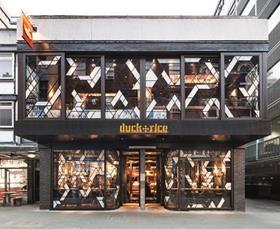
He happily concedes that some journalists don’t get it. “They think it’s a bad idea to retrospectively go back to something that’s not credible in the first place, but I like that way,” he says. “If someone doesn’t get the joke, it’s fine.” And he really is, perhaps because many do get it - and of those who don’t, most do get the food. The menu is not purely devoted to Chinese food, as proved by the Iberico ham. It is devoted to food that tastes good, most of which happens to be Chinese. In terms of the drinks on offer, the star beer is an unpasteurised Pilsner Urquell from the Czech Republic.
“This is based on the anglicised Chinese cooking of yesterday,” he says. “The evolution is that we are not selling authenticity. The fact is we’ve put a Spanish ham on the menu. I do it for the love of the dish and it goes really well with a pint. The intellectual argument is not about authenticity. Chips and curry sauce - it’s about that.”
It is hard to believe that the seed of Duck + Rice (and the predecessors that earned Yau an OBE in 2006) were sown in the 1970s in, of all places, King’s Lynn, Norfolk, where he moved when he was 12. He is not keen to reminisce about his childhood there, but it has undoubtedly spurred him on to achieve the successes he has and arguably shaped his culinary vision. While the first Duck + Rice came about because the property was available, the unusual concept was simmering away for years.
“I tend to think about ideas intellectually; it develops like a set of algorithms,” Yau says. “They naturally develop until they are strong enough. Trends and fads don’t worry me. What worries me is that I have something that is fully resolved in terms of the idea. This is a fun thing; it’s nice to do an English pub with a Chinese kitchen serving comfort food.”
You almost pity the agent tasked with satisfying such an exacting requirement. Yau is advised by occupier-only property advisers DeVono and it sounds as though they are going to be busy in the coming months. Duck + Rice is a three-floor establishment covering 4,600 sq ft. What Yau would ideally like is either 5,000 sq ft or 3,000 sq ft on a single floor, but he is not the only one looking for that sort of space. “There is a lot of competition with the pubs themselves. Everyone has a price and space tends to be very expensive.”
Despite the “perverse economics” involved, he says he has the funding in place to implement a significant rollout of Duck + Rice. He hopes to open two more outlets next year, initially in central London, and by 2017 to have three to five further sites in central London, plus one in Dubai. Once those are up and running, he would like to appoint a pub industry chief executive and go to a second round of fundraising, at which point he would focus on the UK - big style. “The internal market is so strong, I don’t need to go anywhere else. I would be happy for this to go to 100 units.”
It sounds ambitious, but you wouldn’t bet against the man who came up with Wagamama, and his aspirations for Babaji are no less bold. “I hope I can elevate pide into an acceptable alternative to the pizza,” Yau says. “The aspiration is to mimic the business model of Pizza Express. I don’t have a problem if we don’t achieve that in my lifetime. I would consider it a success if we become the forerunner in taking pide out of the ethnic backwater into the mainstream.”
Mono mania
Again, Dubai features in his plans. The short-term intention is to open a second site, in Dubai, after Christmas, he says. “That’s going to be a dry concept and will be bigger because that’s going to be our flagship,” he says. “Following that, in the last quarter of 2016, we’re opening a second site in Dubai.”
And again, the initial focus will be London. This time, though, the units will be supported by a central kitchen, allowing it to reduce the size of the property to 2,000 sq ft. “The ideal is to have two to six units open in 2016 and five more in 2017,” he says, adding that while the central kitchen has not yet been acquired, he is eyeing Hackney: “We haven’t found a site, but we have a location in mind.”
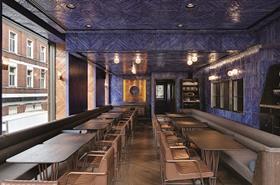
The last year has seen a proliferation of mono-product restaurants and Yau is fascinated by the concept, so much so that it is what he would like to have done with Babaji, and may still do. “The numbers show that the more you narrow the focus, the better your product will be,” he says. “In Japan, mono products are a given if you want to give yourself more credibility. I love mono products as a concept.”
The problem, he says, is that if a restaurateur comes up with a winning concept, they will inevitably try to upscale the operation and “lose the plot” by shifting their focus away from the integrity of the food to the property required. “You need to grow the offer in order to go to your new equilibrium. It doesn’t work.”
Not as a mass-market proposition anyway, which, as Yau points out, he has spent a lifetime pursuing. The culinary polar opposite is, of course, Blumenthal’s molecular gastronomy, but each to their own, he says. “I admire the enquiry side, but he is a chemist. What he does is more science based. I see cooking as a craft.”
Yau draws inspiration from Japan, where ingredients are everything. “They say a craft-based Japanese bartender will only offer a Bellini six weeks of the year because the white peach comes out at the end of July and finishes in the first week of September,” he says. “Then they will move on to something else. That is more to my spirit.”
The irony in aspiring to the mass market is that he sold Wagamama before it achieved that status. Yau is not bitter, but you get the sense he would like to stay a little longer at the helms of Duck + Rice and Babaji. “I prefer not to comment on Wagamama,” he says. “It’s a concept I always wanted to become mainstream and I was involved in for five years. With Babaji and Duck + Rice, I’ve found a better way to expand, which is about putting in senior management to each of the two to give them better focus.”
Yau is clearly confident Duck + Rice and Babaji have the capacity to grow significantly. They may not win him Michelin stars but, as he says, “each has the potential to attract a certain type of people” - and you would think rather a lot of them, thanks to Yau’s unique fusion of British and ethnic culinary sensibilities.


























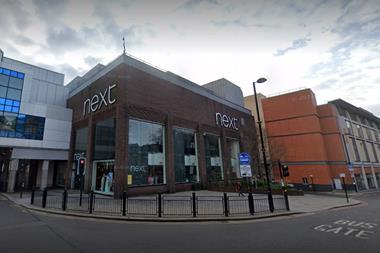
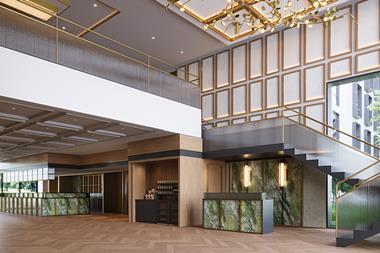


No comments yet